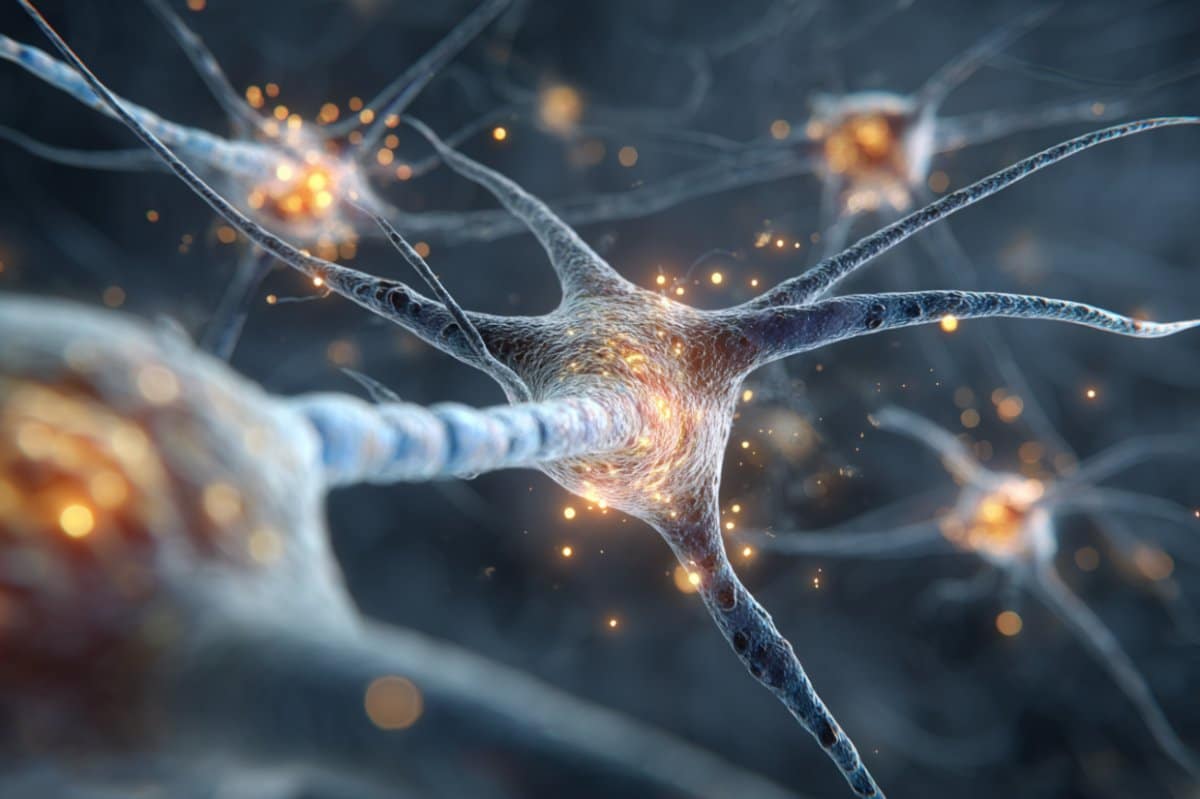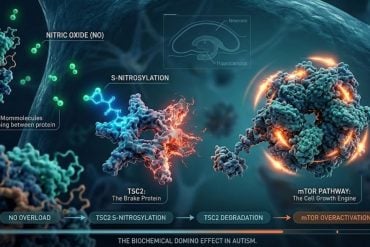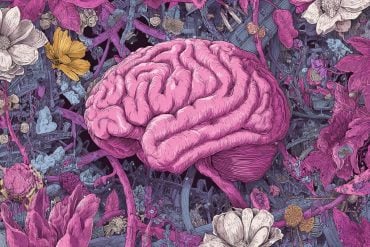Summary: A new study reveals that neural stem cell grafts can generate new myelin in the central nervous system, offering hope for treating progressive multiple sclerosis (MS). Researchers showed that induced neural stem cells matured into myelin-producing oligodendrocytes and safely integrated into damaged regions in a mouse model.
The findings suggest stem cell therapies could address the underlying neurodegeneration in progressive MS, beyond simply managing symptoms. This breakthrough supports the RESTORE consortium’s mission to develop patient-centered clinical trials for stem cell-based MS therapies.
Key Facts:
- New Myelin Formation: Neural stem cell grafts formed myelin-producing cells in damaged regions.
- Safe Transplants: Human induced neural stem cell grafts were shown to be safe in animal models.
- RESTORE Initiative: Findings advance efforts toward clinical trials targeting progressive MS.
Source: University of Cambridge
A study led by Cambridge researchers has shed light on how neural stem cell grafts could help restore myelin in the central nervous system.
The findings suggest that neural stem cell-based therapies hold promise as a potential treatment for chronic demyelinating disorders, particularly progressive multiple sclerosis.
Multiple sclerosis (MS) is an autoimmune disease where the body’s immune system mistakenly attacks the central nervous system, leading to the destruction of myelin, the protective sheath surrounding nerve fibres. This damage is a leading cause of neurological disability in young adults.

In the early stages of MS, certain cells possess the capacity to partially repair this damage by generating new myelin. However, this regenerative ability reduces significantly in the later, chronic progressive stage of the disease. This decline in repair contributes to further damage to neurons and increasing disability in individuals with progressive MS.
Despite advancements in treatments, current therapies mostly focus on managing symptoms but do not halt or reverse the damage and neurodegeneration caused. This shows the critical need for a more profound understanding of how MS progresses and to explore how stem cell technologies could help MS treatment.
The study, published in the journal Brain, was spearheaded by University of Cambridge scientist Dr. Luca Peruzzotti-Jametti and offers crucial insights into the potential of neural stem cell transplantation in pwPMS (progressive multiple sclerosis). While neural stem cell transplants present a promising avenue for repairing the damaged central nervous system, the limits of their capacity to repair are being investigated by researchers.
This study focused on using induced neural stem cells (iNSCs) in a mouse model to evaluate their ability to promote remyelination. The research showed, for the first time, that induced neural stem cells grafts can mature into oligodendrocytes, the cells responsible for producing myelin.
More importantly, the study provided evidence supporting the safety of human induced neural stem cell transplantation.
“This research provides critical evidence that induced neural stem cell grafts can effectively turn into myelin-producing cells within the damaged central nervous system, suggesting a potential new way to treat progressive MS,” said Dr. Peruzzotti-Jametti, Department of Clinical Neurosciences, University of Cambridge, the study’s first author.
The research team is investigating the underlying mechanisms of MS in the central nervous system and exploring how neural stem cell-based treatments can influence neuroprotective and anti-inflammatory processes. The goal of this research is to see how these therapies may mitigate brain atrophy and slow the progression of MS.
“Our findings represent a significant step forward in understanding how stem cell therapies can be harnessed to combat chronic demyelinating disorders,” said Stefano Pluchino, Clinical Professor of Regenerative Neuroimmunology at the Department of Clinical Neurosciences, the study’s senior author.
“We are particularly excited about the potential to develop central nervous system directed therapies that not only manage symptoms but also address the underlying neurodegenerative processes in progressive MS.
“We’ve shown we can make new myelin with stem cells, and demonstrated it is possible to target lesions with grafts. This is a major step forward in the research towards directed therapies for chronic demyelinating disorders such as progressive multiple sclerosis.”
Future research and RESTORE
This compelling evidence demonstrating the ability of neural stem cell grafts to generate new myelin in vivo within laboratory animals exhibiting MS-like lesions carries significant implications for ongoing research and the development of clinical trials.
One group dedicated to developing innovative stem cell therapies for people with progressive MS is RESTORE, a collaborative European and US consortium which includes a number of leading scientists from Cambridge University including Prof. Pluchino & Dr. Peruzzotti-Jametti. Supported by the International Progressive MS Alliance – Experimental Medicine Development Award Scheme 2025, RESTORE’s mission is to pioneer a groundbreaking efficacy clinical trial using neural stem cell-based therapy for progressive MS.
A core focus of the group’s approach is placing patients at the heart of research, actively involving and engaging people with MS to ensure that the work addresses their needs, values, and perspectives.
The success of this study will help support the RESTORE consortium in their goal of pursuing therapies for the benefit of patients with progressive MS, and shows that neural stem cell transplantation can lead to meaningful remyelination and improved neurological outcomes in patients.
It is hoped this can potentially pave the way for more effective clinical trial designs and ultimately, a fully biological disease-modifying therapy.
“We will be working with our partner researchers worldwide across the RESTORE research consortium to directly put the findings of this study into further practice, and to explore the potential for a neural stem cell graft clinical trial in the future,” said Professor Pluchino.
Dr Catherine Godbold, Senior Research Communications Manager at the MS Society, said: “More than 150,000 people live with MS in the UK and it can be debilitating, exhausting and unpredictable. Neural stem cell therapy for MS is still in the very early stages of research, but these results with mice are invaluable.
“They help us understand how neural stem cells might one day be able to unlock desperately needed myelin-repair treatments. We’re proud to have supported this study and hope it can bring us another step closer to stopping progression for everyone with MS.”
Funding
This work received funding from the Medical Research Council, the Bascule Charitable Trust, the National MS Society, FISM – Fondazione Italiana Sclerosi Multipla, the European Committee for Treatment and Research in Multiple Sclerosis (ECTRIMS), and the UK MS Society Centre of Excellence.
About this genetics and multiple sclerosis research news
Author: Lucy Theobald
Source: University of Cambridge
Contact: Lucy Theobald – University of Cambridge
Image: The image is credited to Neuroscience News
Original Research: Open access.
“Remyelination of the chronic demyelinated lesions of the spinal cord with directly induced Neural Stem Cells” by Stefano Pluchino et al. Brain
Abstract
Remyelination of the chronic demyelinated lesions of the spinal cord with directly induced Neural Stem Cells
The limited ability of CNS progenitor cells to differentiate into oligodendrocytes limits the repair of demyelinating lesions and contributes to the disability of people with progressive multiple sclerosis (PMS).
Neural stem cell (NSC) transplantation has emerged as a safe therapeutic approach in people with PMS, where it holds the promise of healing the injured CNS.
However, the mechanisms by which NSC grafts could promote CNS remyelination need to be carefully assessed before their widespread clinical adoption.
In this study, we used directly induced NSCs (iNSCs) as a novel transplantation source to boost remyelination in the CNS. Using a mouse model of focal lysophosphatidylcholine (LPC)-induced demyelination, we found that mouse iNSCs promote remyelination by enhancing endogenous oligodendrocyte progenitor cells differentiation and by directly differentiating into mature oligodendrocytes.
Transplantation of mouse iNSCs in LPC-lesioned Olig1−/− mice, which exhibits impaired remyelination, confirmed the direct remyelinating ability of grafts and the formation of new exogenous myelin sheaths.
We also demonstrated that the xenotransplantation of human iNSCs (hiNSCs) is safe in mice, with hiNSCs persisting long-term in demyelinating lesions where they can produce graft-derived human myelin.
Our findings support the use of NSC therapies to enhance remyelination in chronic demyelinating disorders, such as PMS.







